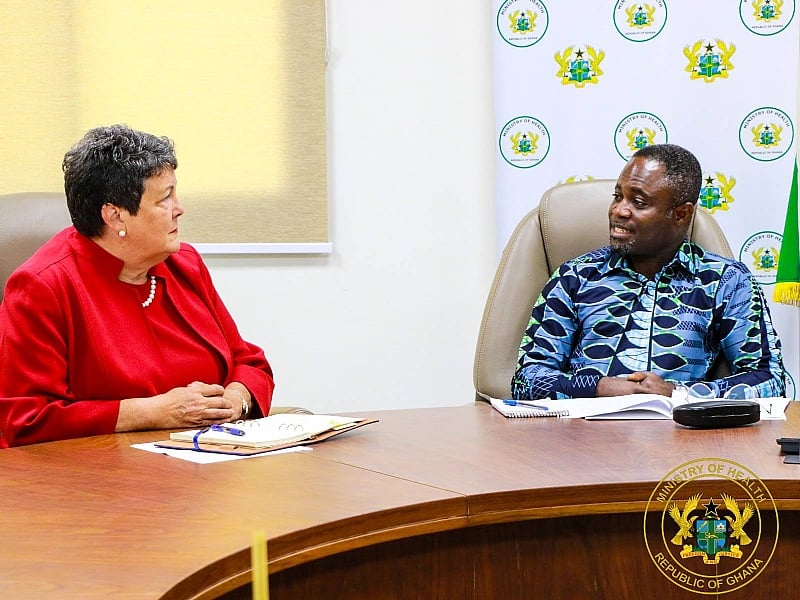The meeting between Ghana’s Minister for Health, Mr. Mintah Akandoh, and the United States Ambassador to Ghana, Virginia E. Palmer, centered around the future of healthcare delivery in Ghana, particularly in the context of the withdrawal of USAID funding. Mr. Akandoh outlined the Ghanaian government’s commitment to strengthening the healthcare system, highlighting key areas of focus such as maternal and child health services, infectious disease control, and emergency medical response. He acknowledged the historical significance of U.S. support in bolstering Ghana’s health sector, specifically referencing programs targeting malaria prevention, maternal healthcare, and HIV/AIDS. The Minister underscored the Ministry’s dedication to building a resilient and sustainable healthcare system capable of meeting the needs of the Ghanaian population.
Ambassador Palmer, while acknowledging the cessation of USAID funding, offered reassurance that Ghana’s healthcare system would not experience immediate disruption. She emphasized that alternative measures were already in place to mitigate potential challenges arising from the funding withdrawal. Her expression of confidence in Ghana’s ability to navigate this transition underscores the collaborative spirit of the meeting and the shared commitment to maintaining the progress made in the health sector. This proactive approach to addressing the funding gap suggests a commitment to finding alternative avenues of support and ensuring the continuity of essential health services.
The Minister’s pronouncements regarding planned improvements to the healthcare system reflect a proactive approach to addressing critical health needs in Ghana. Expanding maternal and child health services aims to reduce maternal and infant mortality rates, contributing to improved health outcomes for vulnerable populations. Strengthening the fight against infectious diseases, a persistent challenge in many developing countries, demonstrates a commitment to preventative healthcare and disease control, crucial for safeguarding public health. Enhancing emergency medical response systems is vital for timely and effective intervention in critical situations, ultimately saving lives and reducing morbidity.
The Ambassador’s assurance of continued support, despite the USAID funding withdrawal, highlights the enduring partnership between the United States and Ghana in the health sector. While the withdrawal of direct funding presents a challenge, the implementation of alternative interventions signals a proactive approach to maintaining the momentum of healthcare improvements. This commitment to finding alternative solutions reinforces the importance placed on the health and well-being of the Ghanaian people by both governments. The focus on mitigating potential disruptions demonstrates a shared understanding of the critical role of uninterrupted healthcare services.
The discussion between the Minister and the Ambassador provided a platform for open communication and strategic planning regarding the future of healthcare in Ghana. It highlighted the importance of international collaboration and the need for sustainable solutions to ensure long-term health security. The meeting served as an opportunity to reaffirm the shared commitment to strengthening Ghana’s healthcare system and ensuring its resilience in the face of evolving challenges. This collaborative approach to problem-solving underscores the importance of partnership in addressing complex issues in global health.
The meeting emphasized the need for a multi-faceted approach to strengthening Ghana’s healthcare system, incorporating both internal initiatives and external collaborations. The Minister’s plans for improvement reflect a commitment to addressing key health priorities, while the Ambassador’s reassurances and the discussion of alternative interventions highlight the importance of international support and strategic planning. This collaborative approach suggests a positive outlook for the future of healthcare in Ghana, emphasizing resilience, adaptability, and a shared commitment to improving the health and well-being of the population. The transition away from USAID funding, while presenting challenges, also opens up opportunities for exploring new partnerships and innovative approaches to sustainable healthcare financing and delivery.














